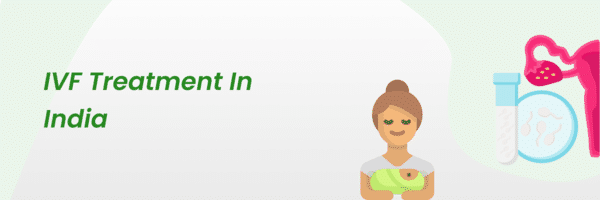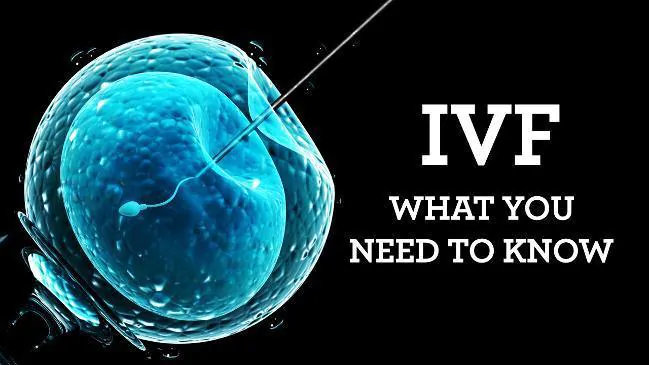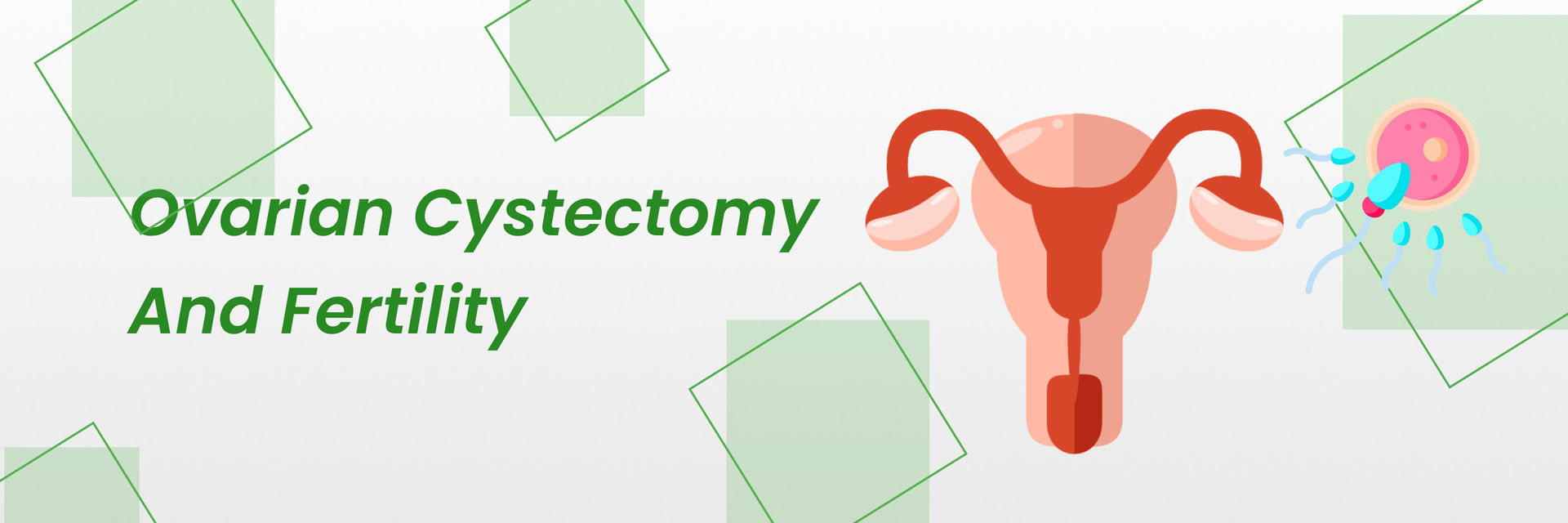Overview
Repeated implantation failure (RIF) is a term used in the field of reproductive medicine to describe a situation where a woman fails to achieve a pregnancy after multiple attempts of embryo transfer in an in vitro fertilization (IVF) or assisted reproductive technology (ART) cycle. It is generally defined as the failure to achieve a clinical pregnancy after the transfer of at least three good-quality embryos in consecutive IVF cycles.
In this blog, we are going to discuss it in detail.
Your health is too important to ignore – schedule your appointment now!
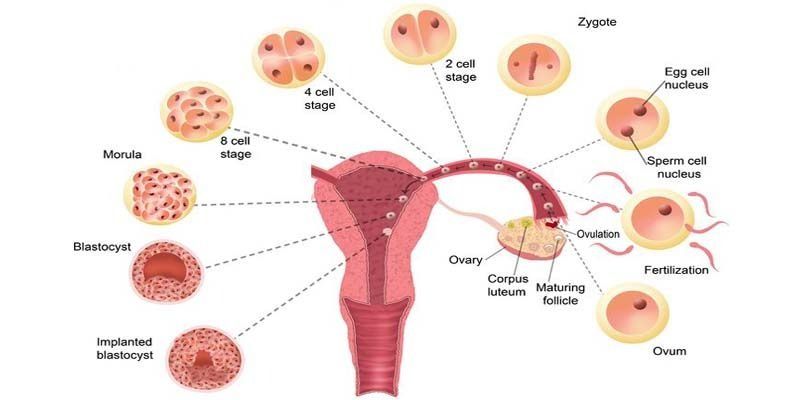
Let’s start by looking at the causes first!!
What causes repeated implantation failure?
Studies have found that repeated implantation failure can be caused by various reasons. The reasons are mentioned below:
Uterus abnormalities | Adhesions, fibroid or septum can interfere with the implantation. |
Hormonal factors | Hormone imbalances, including thyroid and PCOS, affect the receptivity of the uterus. This can cause repeated implantation failure. |
Immunological factors | Immune system plays an important role in regulating implantation. Abnormalities in immune function can lead to repeated implantation failure. |
Genetic reasons | Chromosomal abnormalities in the embryo or in the parents can cause repeated implantation failure. |
Lifestyle | Smoking, drinking and obesity are some of the lifestyle factors that can cause repeated implantation failure. |
Age-related factors | Older age of the mother is linked with a decline in fertility and an increased risk of repeated implantation failure. |
This is a very complex condition. It is important that you go through a thorough evaluation to understand the underlying cause and get treatment effectively.
How common is repeated implantation failure?
The exact prevalence of repeated implantation failure is difficult to determine. The differences in diagnostic criteria make it unclear.
However, repeated implantation failure is not as common as it is perceived to be.
Studies report that repeated implantation failure rates are around 2-25% in women with IVF. However, there are chances that this rate can inflate. It is because of women who might have other infertility issues.
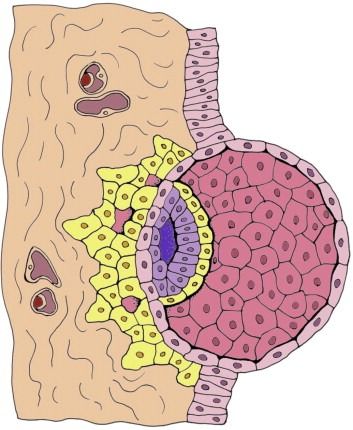
The study also suggests that the risk of RIF may be lower in women undergoing IVF with Euploid embryos. Euploid embryos (embryos that have more than a usual number of chromosomes) when transferred increase the chances of implantation.
Repeated implantation failure occurs rarely. It occurs in less than 5% of IVF cycles.
According to experts at Welzo, an online healthcare platform,
Male factor infertility can contribute to RIF. Assessing the male partner's fertility involves a semen analysis to evaluate sperm parameters such as count, motility, and morphology. Additional tests, such as sperm DNA fragmentation analysis or genetic testing, may be recommended based on individual circumstances. Addressing any male factor infertility issues can be part of a comprehensive approach to improve fertility outcomes.
You might be wondering what the procedures are to diagnose this complex condition!! Read below to take a look at various diagnostic procedures.
How is repeated implantation failure diagnosed?
Diagnosis of repeated implantation failure involves the evaluation of both female and male partners. The diagnostic processes include:
Reviewing medical history | Both partners are evaluated to understand the potential risk factors. Previous surgeries or medical conditions are taken into consideration for a better understanding of the situation. |
Physical examination | This is done to assess any physical abnormalities that can impact implantation. |
Hormonal testing | Blood tests are performed to check hormone levels. This helps in identifying hormone imbalances that cause repeated implantation failure. |
Imaging tests | Ultrasound or hysteroscopy is done to identify any abnormalities in the uterus structure that can impact the implantation. |
Genetic testing | This is done to identify chromosomal abnormalities that can lead to implantation failure. |
Semen analysis | Male partner’s fertility is checked by the semen analysis. Any abnormality in the sperm can also cause implantation failure. |
Timely treatment is very important for improving success rates. To learn about the various treatment options available for RIF. Continue reading below!
What are the treatment options for repeated implantation failure?
There are various kinds of treatment for repeated implantation failure depending upon what is causing implantation failure. The treatment methods discussed below help in increasing the chances of implantation success.
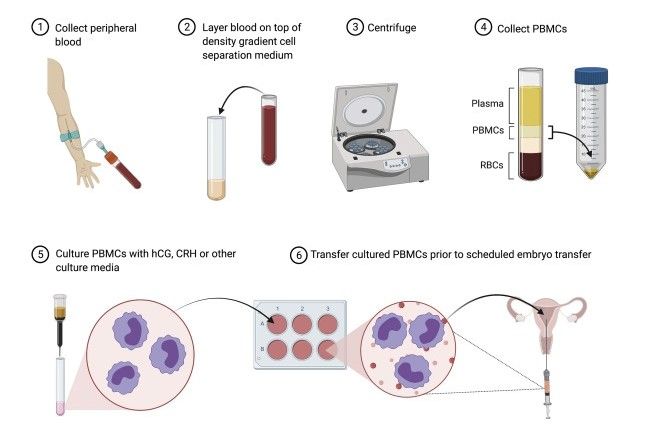
Endometrial scratch | This is a process where the womb is stimulated before implantation. This method has shown improved chances of implantation in those who suffer from repeated implantation failure. |
Endometrial receptivity array | This is a method to identify the best time for implantation. This depends on the genes present in the lining of the womb, and when they are their best for facilitating implantation. |
Embryo selection techniques | This helps in preventing cycle failures. This includes the genetic screening of embryos. The development of embryos is monitored using an embryo scope and time-lapse technology. |
Take the first step to recovery. Get in touch with us for your treatment.
What is the role of genetics in repeated implantation failure?
As per studies, genetics does play a role in repeated implantation failure. There are some genetic defects that can lead to repeated implantation failure. Chromosomal abnormalities in the embryo can lead to repeated implantation failure.
Women who have some kind of genetic variation can impact the function of genes involved in implantation. The genetic variations make it difficult for the embryo to implant and develop properly. This leads to repeated implantation failure.
Genetic testing is helpful in such cases to identify genetic factors which can lead to repeated implantation failure. It will lead to understanding the treatment options better.
How can uterine abnormalities contribute to repeated implantation failure?
Uterine abnormalities can contribute to repeated implantation failure. These abnormalities affect the ability of the embryo to implant and develop properly.
Uterine abnormalities include:
- Structural defects: septum or fibroids.
- Functional defects: abnormal response to hormone changes during menstruation.
These abnormalities create a hostile environment for the embryo. This causes issues with implantation, growth and development.
Moreover, uterine abnormalities affect blood flow to the uterus. This can also impact implantation.
Diagnosing and treating uterine abnormalities can also help in increasing the chances of successful implantation.
What is the success rate for treatments for repeated implantation failure?
The success rates of treatment for repeated implantation failure vary depending upon the underlying cause.
As per studies, the success rates of various RIF treatments range from 10% to 70%.
The preimplantation genetic technique helps in selecting embryos with normal chromosomal content. This increases the chances of successful implantation by 70% in RIF patients.
Similarly, endometrial scratching and hysteroscopy have success rates of 10% to 50%.
However, the success rates of these treatments need to be interpreted with caution. They may vary depending on the patient's age, the number of previous failed IVF cycles, and the specific causes of RIF.
Take charge of your health with the best treatment. Book your consultation now.
References:
https://journals.lww.com/co-obgyn/pages/default.aspx

